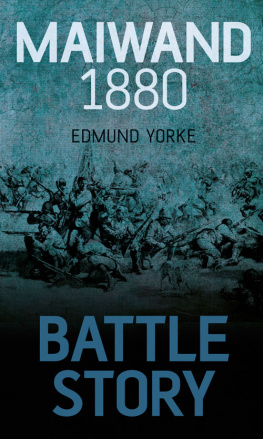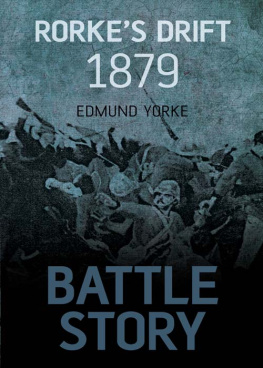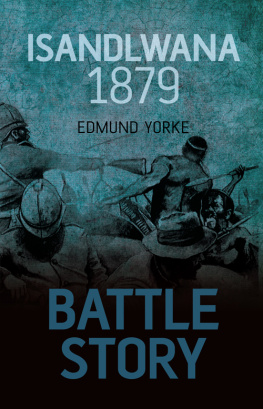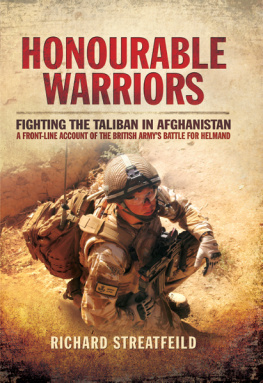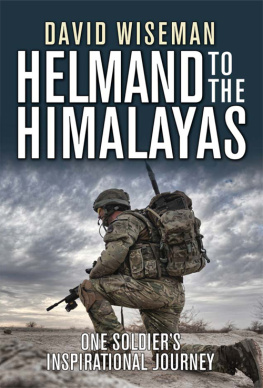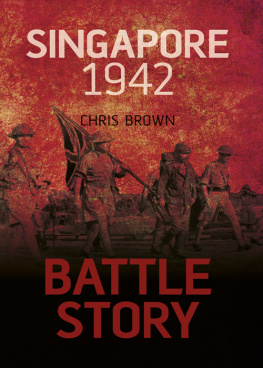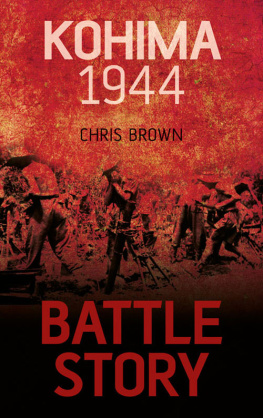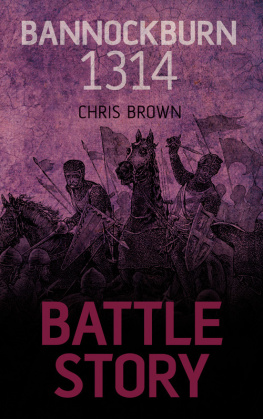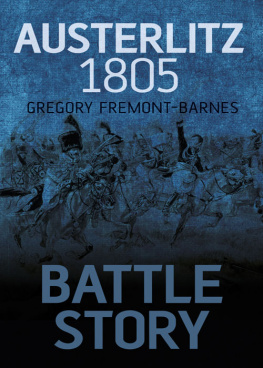
For Louise, Madeleine and Emily
Several individuals and key institutions have played a significant role in the research and production of this book. The archival and library staff of The National Army Museum; British Library, London; the Rifles Museum, Salisbury; (especially Curator Lieutenant Colonel Cornwall and his curatorial assistant, Mr McIntyre) and the Ghurka Museum, Winchester have been particularly helpful in regard to access to the papers of Lord Roberts and Lord Lytton and to a selection of the many first-hand accounts, letters and diaries of the British survivors of Maiwand.
At the Royal Military Academy Sandhurst, the library and archival staff of the Royal Military Academy Library and Archives, notably Senior Librarian Andrew Orgill, Deputy Librarian, John Pearce and Assistant Ken Franklin have also been extremely supportive especially in regard to access to the Hogg Papers and many rare regimental histories and memoirs. Several academic colleagues , notably Director of Studies, Mr Sean McKnight, Head of War Studies, Dr Duncan Anderson, Retired Sandhurst curator Dr Tony Heathcote and Senior Lecturer Dr Gregory Fremont-Barnes have also been a source of great encouragement and advice, and the latter has kindly provided some valuable images from his private collection.
I would also like to thank my great friend Lieutenant Colonel Ian Bennett (RASC/RCT retired) whose close links to the Royal Berkshire Regiment have proved invaluable. Dr John Peaty of the Defence Geographical Centre supplied some valuable maps. Friends of the Ghurka Museum, Alan (RMP retired) and Jacqui Marsh have also been of great help. At The History Press, Jo de Vries and her editorial team, especially Paul Baillie-Lane, must also be congratulated for their great patience, support and efficiency in the publication of this work.
Above all, I must thank my parents and wider family, and also my wife Louise and my two delightful daughters, Madeleine and Emily, for their steadfast loyalty, love and support during the hectic days and weeks preparing this work for publication.
CONTENTS
Uneasy Peace 184363
Russophobia Revived
Descent into Conflict 187478
The Outbreak of War 1878
The British and their Allies
The Afghan Forces
The Battle of Peiwar Kotal
The Campaign of the Peshawar Valley Field Force
The Campaign of the Kandahar Field Force
The Massacre of the Cavagnari Mission, September 1879
The Second Revenge Campaign; Charasia to Maiwand, 18791880
Arrival at Kabul
The Siege and Defence of Sherpur
The Battle of Ahmed Khel
What Actually Happened?
Crisis in the South; The Road to Maiwand
The Battle of Maiwand
The Kabul to Kandahar Relief Force
The Battle of Deh Khoja
End Game: The Battle of Kandahar,
September 1880
Political Legacies
Military Legacies
Legacies for the Afghan People
Poor young Olivey, 66th, who was carrying one of the Colours was asked by a sergeant to let him carry it as he (young Olivey) was wounded He threatened to shoot the sergeant with his revolver and said he would rather die by the colour than relinquish it in defeat. He was shot dead five minutes later.
Captain Slade, RHA, to his mother
(Rifles Museum Archives (hereafter RMA))
It was mid-September, 1880 and they were following back along the line of retreat taken by Brigadier-General Burrows shattered brigades after their disastrous encounter with Sirdar Ayub Khan, Ruler of Herat They began to find desiccated bodies, more and more until over a hundred soldiers corpses had been discovered, all that was left of the poor wretches who had given up or lain down to die, or had been attacked by the local villagers a move forward over to the scene of fighting the European and Indian bodies had been left lying where they were under burning sun or sheeting rain until a hasty internment had been carried out...
Description of the first visit to Maiwand battlefield by burial parties of the 2nd Bombay Infantry Brigade, September 1880 (extracted from Maxwell, My God Maiwand , pp.13)
The Battle of Maiwand, fought on 27 July 1880 constitutes one of the most devastating military disasters of Queen Victorias Afghan campaign. After a string of victories at Peiwar Kotal, Ali Masjid, Futtehabad, Charasia, Sherpur and Ahmed Khel, achieved over two campaigns in Afghanistan, both Gladstones Liberal government and the Victorian public were profoundly shocked by the scale of this defeat. Brigadier General Burrows 2,700-man brigade suffered 43 per cent casualties with 21 officers and 948 men killed and 169 wounded, in addition to around 800 native followers and drivers who perished alongside them. The six companies of the 66th Foot, Royal Berkshires, comprising 516 men, alone lost 286 officers and men, a 62 per cent loss. Only a very few other Victorian defeats exceeded such a high mortality rate, notably Isandlwana, fought over eighteen months earlier, where more than 20,000 Zulu warriors destroyed a 1,700-strong British garrison, (over 75 per cent killed) and the retreat from Kabul in the First Anglo-Afghan War, when a 16,500-strong British army was virtually annihilated by an estimated 10,000-strong Afghan insurgent force (over 90 per cent killed).
The main aim of this short introductory book, deploying my own recent primary resourced research and the views of many contemporary accounts and several leading experts, is to present for non-specialists and general military history enthusiasts, a clear and hopefully balanced and concise narrative of this famous battle. To tell the story completely, we will have to touch on the details of the main preliminary battles as well as the hitherto neglected and often vital political, economic and military support afforded to the British by their indigenous Tajik, Hazara and Qizilbash allies. Sadly, as we shall see, these loyal, if sometimes intractable and unpredictable, allies were not present to assist the British at the Battle of Maiwand. The opinions expressed in this work are my own and do not reflect those of the Ministry of Defence, or Royal Military Academy, Sandhurst.
1878 |
183942 | First Anglo-Afghan War |
1864 | Gorchakov Manifesto justifies renewed Russian expansion |
18648 | Russian territorial expansion |
1874 | Disraeli government takes office forward school becomes dominant |
1876 | Lord Lytton becomes Viceroy of India |
Chamberlain Mission blocked from entry into Afghanistan |
2 November | Viceroy Lytton issues an ultimatum demanding Amir Sher Ali accept British Mission in Kabul |
20 November | Ultimatum expires |
21 November | War breaks out as three British columns converge upon Afghanistan. Lieutenant General Sam Browne, leading the Peshawar Valley Field Force, assaults Ali Masjid fortress in the Khyber Pass |
22 November | Browne Secures Ali Masjid after Afghan evacuation and retreat |
24 November | Browne occupies Dakka |
2 December | Major General Roberts, leading the Kurram Valley Field Force, secures victory at Peiwar Kotal |
13 December | Amir Sher Ali abdicates and appoints his son Yakub Khan as ruler |
20 December |
Next page
